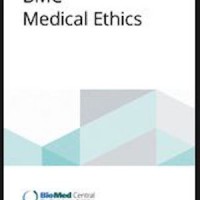
« Vulnerability identified in clinical practice: a qualitative analysis »
Nouvelle publication de Samia Hurst, avec Laura Sossauer, Mélinée Schindler, dans BMC Medical Ethics. Un article intitulé « Vulnerability identified in clinical practice: a qualitative analysis ».
Résumé
Although it is the moral duty of physicians to protect vulnerable patients, there are no data on how vulnerability is perceived in clinical practice. This study explores how physicians classify someone as “vulnerable”. Thirty-three physicians were initially questioned about resource allocation problems in their work. The results of these interviews were examined with qualitative study software to identify characteristics associated with vulnerability in patients. Data were conceptualized, classified and cross-linked to highlight the major determinants of vulnerability. The findings revealed the principal factors that make patients vulnerable in clinical practice, according to our definition of vulnerability: the likelihood of having one’s interests unjustly considered. Vulnerability can arise as a result of a mismatch between the characteristics of patients and physicians, the healthcare system, the treatment, or the communication between physicians and patients. Vulnerability appears as a gap between a patient’s needs and the means intended to meet them. Vulnerability can further be the result of doing too little or too much for patients. This result suggests that structures provided by healthcare systems are not as differentiated as they should be to cover all situations. Our initial definition of vulnerability was illustrated and supported by our results, showing that it encompasses all factors involved, not solely personal characteristics, indicating the need for a more pragmatic approach for use in clinical practice. Vulnerability is not due to a single factor but appears under certain circumstances when there is a discrepancy between a patient’s interests and the care provided, despite existing compensation systems.



